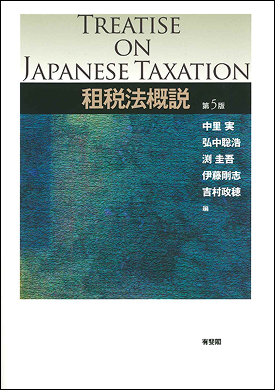-
Articles
Some Notable Tax Updates in Thailand
1. Channel to Contact the Revenue Department Electronically
The Revenue Department Notification, Channel to Contact the Revenue Department Electronically B.E. 2566 (2023), has been enacted in order to announce a channel for a taxpayer to submit an application form, request form and/or other documents to the Revenue Department or the Director – General of the Revenue Department: www.rd.go.th/rdeservice.
If a taxpayer who has already submitted an application or made contact via the above channel wishes to inquire or confirm receipt of the submitted documents, he/she can contact the Revenue Department or the Director–General of the Revenue Department during working hours on www.rd.go.th/rdeservice.
2. Tax Reduction and Extension of the Withholding Tax Rate when Remitting via the E-withholding Tax System
Ministerial Regulation No.389 B.E. 2566 (2023) has been enacted in order to grant a reduction and extension of the withholding tax rate – down to 1% - when the tax is remitted via the e-withholding tax system for payments made during 1 January 2023 to 31 December 2025, as follows:
- Assessable income (hire of work) of a company or juristic partnership under Section 40 (2) of the Revenue Code. This, however, does not include a charity foundation or organisation that has income under Section 47 (7) (b) of the Revenue Code
- Assessable income of a company or juristic partnership under Section 40 (3) of the Revenue Code, but limited to income from goodwill, royalties or other rights. However, this does not include a charity foundation or organisation that has income under Section 47 (7) (b) of the Revenue Code.
- Assessable income (property rental) of a taxpayer who has a duty to pay personal income tax or corporate income tax under Section 40 (5) (a) of the Revenue Code. However, this does not include the rental fee of a ship used for international shipping or a charity foundation or organisation that has income under Section 47 (7) (b) of the Revenue Code.
- Assessable income of a taxpayer (liberal professions and contractor) who has a duty to pay personal income tax or corporate income tax under Section 40 (6) and (7) of the Revenue Code. However, this does not include a charity foundation or organisation that has income under Section 47 (7) (b) of the Revenue Code.
- Assessable income of a taxpayer who has a duty to pay personal income tax or corporate income tax under Section 40 (8) of the Revenue Code, but limited to income in the form of prizes won in contests, competitions, lucky draws or other similar activities. However, this does not include a charity foundation or organisation that has income under Section 47 (7) (b) of the Revenue Code.
- Assessable income of a public entertainer who is domiciled in Thailand and has a duty to pay personal income tax under Section 40 (8) of the Revenue Code, but limited to payments for performance.
‘Public entertainer’ means theatre, motion picture, radio or television actors/actresses, singers, musicians, professional athletes or any other entertainment artists. - Assessable income of a taxpayer who has a duty to pay personal income tax or corporate income tax under Section 40 (8) of the Revenue Code, but limited to income derived from hire of work, prizes, discount or any other benefits from promotion, advertisement charges and provision of services in addition to those prescribed under Section (3) (16) (non-life insurance premiums) and (3) (17) (freight payments) of Ministerial Regulation No.144 B.E. 2522 (1979), but NOT for payments relating to hotel service, restaurant service or a premium on life insurance. However, this does not include a charity foundation or organisation that has income under Section 47 (7) (b) of the Revenue Code.
'Provision of services' means any activity performed for benefit other than the sale of goods.
'Restaurant' means the business of selling any kind of food or drink, and being engaged in preparing food or drink for remuneration: provided whether inside or from a place which is open to the public and has facilities for consumption.
3. Land and Building Tax Reduction
The Royal Decree on Land and Building Tax Reduction (No.3) B.E. 2566 (2023) has been enacted in order to grant a reduction of land and building tax for the tax year 2023 in the amount of 15% of the calculated tax under Section 42 of the Land and Building Act B.E. 2562 (2019). The types of land and buildings receiving this reduction are as follows:
- Land or building used for agricultural purpose;
- Land or building used for residential purpose;
- Land or building used otherwise than in (1) or (2); and
- Land or building left empty or unused as otherwise reasonable for its condition.
For the specific types of land and buildings specified under Section 3 of the Royal Decree on Land and Building Tax Reduction B.E. 2563 (2020) (“Royal Decree 2020”), which already receive a tax reduction of 50%, they shall be granted with an additional tax reduction of 15% from the tax calculated under the Royal Decree 2020. However, for the land and buildings specified under Section 4 of the Royal Decree 2020, which already receive a tax reduction of 90%, they shall not receive any additional tax reduction.
4. New law to exchange information on tax law at an international level
The Cabinet of Thailand has approved a proposal to issue a Royal Decree to exchange information complying with the international agreement on tax law, which expected to enter into force by the end of this year. In order to comply with the deadline given by the Organisation for Economic Co-operation and Development (OECD), which provides a timeline for countries who signed the international agreement; that each such country must issue a law to exchange information within September 2023.
The aforementioned law shall give officials the power to instruct individuals to submit their own data or that of others in their possession or control, regardless of whether or not the information is useful for tax collection under the Revenue Code. Such data also can be exchanged as requested under the Double Tax Agreement (DTA) and the Mutual Administrative Assistance in Tax Matters (MAC).
Moreover, this Royal Decree shall also create an automated exchange of financial information requiring financial institutions that conduct transactions to accept deposits, financial asset custodians, and entrepreneurs that conduct transactions or carry out investment-related activities must submit a report between each other according to the agreement framework. Said report shall focus on the Thai bank deposit accounts of people from countries that will exchange information with Thailand; this information exchange will allow Thailand to receive more useful information for the audit and monitoring of Thai people who have bank accounts and assets abroad.
Please note that this is only a draft law at the moment; therefore, the taxpayer should continue to follow the relevant laws and regulations before and after the law comes into force.
5. New law to top-up tax on large Multinational Corporations
The Cabinet of Thailand has approved a Global Minimum Tax measure of the Organisation for Economic Co-operation and Development (OECD), which targets large multinational enterprises (MNE) under the Inclusive Framework on Base Erosion and Profit Shifting (BEPS).
The new measure requires an MNE with a gross revenue of Euro 750 million or more to pay a global minimum tax rate of 15% in each country in which their subsidiaries operate and, if the subsidiaries in different countries pay effective tax rates (ETR) below 15%, they must pay the difference (Top-up Tax) in the country in which the parent company is located.
Please note that this is only a draft law at the moment; therefore, the taxpayer should continue to follow the relevant laws and regulations before and after the law comes into force.
Currently, Thailand has already adopted the BEPS by requesting MNEs to submit Country-by-Country Reports on information required by the Revenue Department in English, such as pre-tax profit or loss, income tax amount, number of employees and income details from the core business.
This is intended merely to provide a regulatory overview and not to be comprehensive, nor to provide legal advice. Should you have any questions on this or on other areas of taxation law, please do not hesitate to contact our tax team:
Budhima Kerdsiri (Attorney-at-Law)
Hatairat Sukprasert (Associate)
Pairaya Yangpaksi (Associate)








Budhima provides advice on tax compliance and a wide variety of tax-related work. In particular, she has extensive experience with accounting transactions and tax planning. Further, she has handled tax counseling and tax controversies and has substantial experience representing and advising individuals and major corporations in tax disputes, including filing appeal letters for tax assessments, which were assessed by the Revenue Department, the Customs Department, the Excise Department, and local tax collection agencies such as those dealing with land and building tax. In addition, she has more than 10 years of experience as a public speaker and columnist for tax magazines, focusing on tax planning and tax compliance for individuals and companies seeking to maximize their tax privileges under Board of Investment (BOI) promotion and accounting adjustments to comply with Thai tax laws.
Budhima was a columnist for the Tax Documentation Journal, the No. 1 public journal related to accounting and taxation published by Dharmniti Press Co., Ltd., and she is also the author of “Differences and similarities between accounting profit and taxable profit,” a book that has been published twice.